Treatment of eating disorders should focus on restoring regular eating, working to develop social support and internal resources to cope (rather than using food). Clients should have regular blood work and physical monitoring to screen for dangerous medical complications. Medication has been shown to be helpful in reducing symptoms. The structure provided by partial hospital or residential care is often necessary to break the cycle and support new eating strategies. As with all eating disorders family therapy and education is important to support recovery.
Beginning Eating Disorder Treatment
Early aggressive intervention in the first three years leads to higher recovery rates. Individual psychotherapy is a core element of treatment for clients struggling with eating disorders. Individual eating disorder therapy is designed to focus directly on each individual’s particular thoughts that trigger and fuel an eating disorder. This model of solution focused therapy can help individuals explore triggers for their eating disorder behaviors and learn how to exchange unhealthy habits for healthy ones. Additionally, psychotherapy helps individuals to learn coping methods and problem solving skills for dealing with stressful situations.
Family-Based Eating Disorder Therapy
Family based therapy, or the Maudsley Method, is a first line treatment for children, pre-teens, and adolescents with eating disorders. This therapy builds upon the important role that families play in an individual’s recovery process. Family based treatment (FBT) helps parents and other siblings to understand the complex nature of eating disorders. Parents manage the refeeding process with the support and coaching of specially trained therapists. Family based therapy builds a much needed support system between an individual and their family members helping the family build skills to sustain recovery and act quickly when faced with signs of relapse.
Cognitive-Behavioral Eating Disorder Therapy
Cognitive-behavioral therapy (CBT) is a type of psychotherapy that draws a connection between thoughts, actions, emotions, and physiological reactions. Therefore, the general goal of this type of eating disorder therapy is to encourage more positive thoughts and behaviors and ultimately eliminate an unhealthy reaction to food. Cognitive-behavioral eating disorder therapy is often used to treat clients suffering from bulimia or binge eating disorder. Main skills taught during this type of eating disorder therapy include:
- Identification of events or moods that trigger binge eating episodes
- Correction of beliefs and destructive thought patterns
- Development of coping skills for dealing with daily problems
- Substitution of healthy behaviors for negative behaviors
- Alteration of attitudes regarding food, eating, and body image
Interpersonal Eating Disorder Therapy
Interpersonal therapy is a type of treatment that focuses on underlying mental problems including depression or anxiety. This therapy may not always specifically focus on weight, food, or body image, but instead helps determine outside social factors that influence eating behavior. There is evidence that interpersonal therapy is effective for bulimia nervosa and binge eating disorder.
Dialectical Behavioral Therapy
Dialectical Behavioral Therapy (DBT) is a type of treatment that was developed to help clients with borderline personality disorder and self injury. Protocols have been modified to target binge eating and vomiting. DBT helps by building skills and emotion regulation, mindfulness, interpersonal effectiveness and distress tolerance. Clients learn to evaluate the chain of emotions, events and thoughts that precede binge eating and vomiting. Many of our therapists have training and certification in DBT.
Mindfulness Focused Therapies
Acceptance and Commitment Therapy (ACT) is a model of behavior change that helps clients recognize how avoiding thoughts and getting entangled in destructive thinking will contribute to mental rigidity which contributes to eating disorder behaviors. ACT helps clients accept their reactions and be present, choose a valued direction, and take action toward recovery.
Mindfulness Based Stress Reduction (MBSR), Mindfulness Based Cognitive Therapy for Depression (MBCT) and Mindsight Training are behavioral medicine treatments that are effective with eating disorders due to their focus on interpersonal neurobiology and biopsychosocial systems. All of these models teach how the brain interacts with the body’s response to stress and emotional distress. These treatments promote moment-to-moment, non-judgmental awareness through breathing, meditation activities and awareness practice.
Group Eating Disorder Therapy
Eating Disorder therapy is often offered in groups. Groups reduce shame and isolation associated with the illness. Clients receive support and feedback from other individuals undergoing eating disorder treatment. Groups also may help treat social anxiety and help individuals to improve communication skills. Clients report that group helps build a sense of camaraderie and friendship that allows individuals to see the recovery process in themselves and others. These bonds and relationships help motivate and support individuals even after completing eating disorder therapy. Types of group therapy include:
- Cognitive Behavioral Therapy
- Interpersonal Therapy
- Dialectical Behavioral Therapy
- Meal Therapy
- Family Therapy
- Group Dance and Movement Therapy
- Group Art Therapy
- Mindfulness & Yoga
- Group Fitness Therapy
Trauma-Based Treatment
Many of our clients have suffered from trauma including accidents, assaults and losses. Our therapists have skills such as EMDR and cognitive processing therapy, somatic experiencing therapies and sensory motor therapy. We will always offer evidenced based treatment when appropriate. In general, trauma work is best done after nutrition is restored to diminish dissociation and interference from “hungry brain” thinking. Please contact us if you, your loved one or a client has significant trauma therapy so we can match you with a therapist with appropriate skills.
Nutrition Counseling
The goal of the Nutrition Department at McCallum Place is to provide evidenced based nutrition care plans and counseling to enable clients to establish a lifelong healthy relationship with food. Our registered dietitians support each client in nourishing his/her body in a healthful way and educate them to understand the process involved.
Our nutrition philosophy fully encompasses two important aspects of recovery: nutrition stabilization and normalization of food beliefs and behaviors.
Nutrition Stabilization
Nutrition stabilization is one of the physical aspects of eating disorder recovery and is a crucial component to the treatment at McCallum Place. Our nutrition team addresses clients’ needs with personalized meal plans, individual nutrition counseling sessions and consideration for approved physical activity levels. Individual nutrition support and meal coaching is offered during individual sessions, group therapy, cooking classes, self-portioning opportunities, and during restaurant outings multiple times a week.
Nutrition prescriptions are individualized to meet client’s metabolic needs and restore nutritional status through: weight stabilization, electrolyte balance, reversal of malnutrition, correction of micro-nutrient deficiencies, reversal of anemia, normalization of organ function, and restoration of menses for females. Our team approach believes that weight restoration and management are only one aspect of overall recovery.
Read more about our nutrition philosophy here.
Animal Assisted Therapy
Animal-assisted therapy (AAT) is a type of therapy that incorporates animals in the treatment process. The goal of using animals as a treatment option is to improve social, emotional, and cognitive functioning as well as reduce passivity. Research shows that AAT can reduce stress response, anxiety and distress in addition to improving mood for both clients and staff. Meet all the animals that are part of the McCallum team!
















